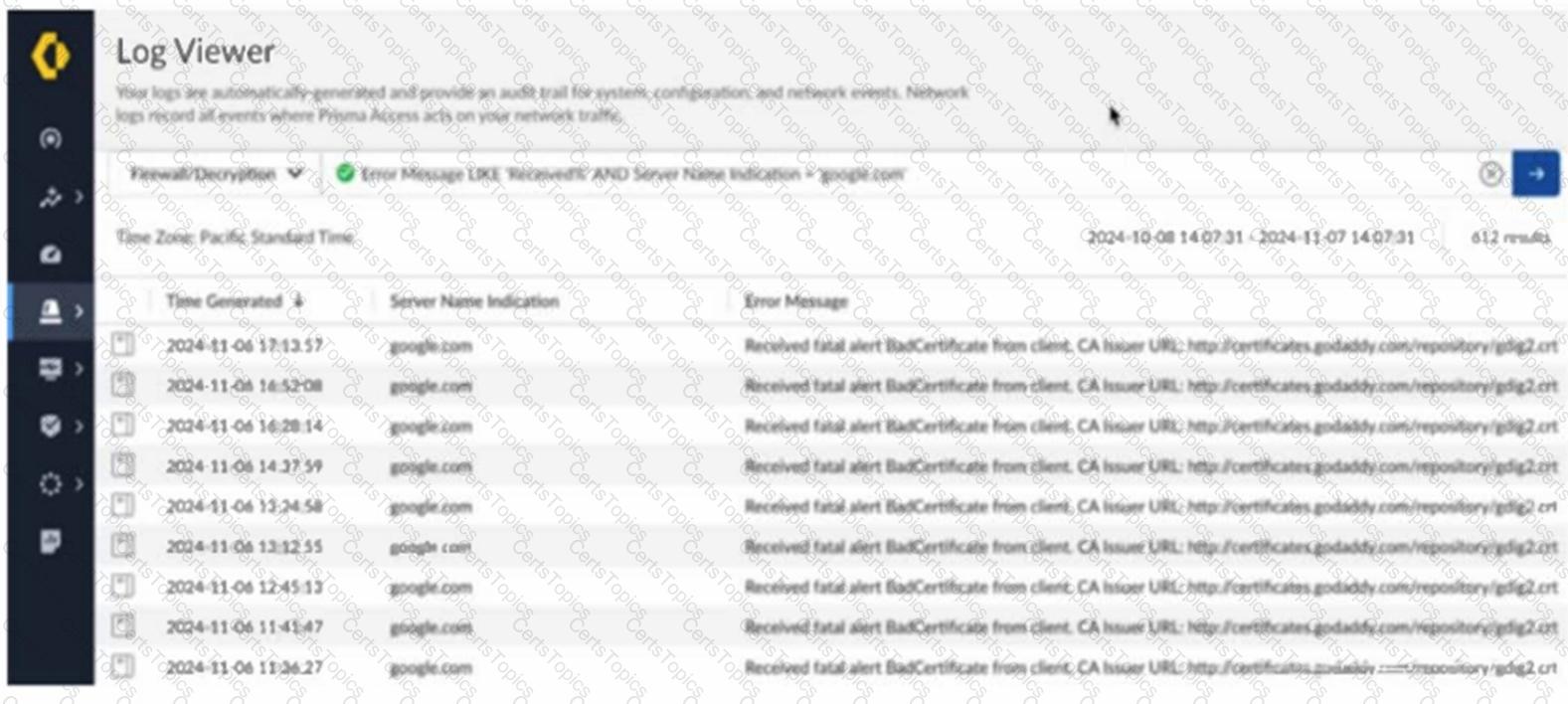What must be configured to accurately report an application's availability when onboarding a discovered application for ZTNA Connector?
Based on the image below, which two statements describe the reason and action required to resolve the errors? (Choose two.)

Where are tags applied to control access to Generative AI when implementing AI Access Security?
An engineer has configured IPSec tunnels for two remote network locations; however, users are experiencing intermittent connectivity issues across the tunnels.
What action will allow the engineer to receive notifications when the IPSec tunnels are down or experiencing instability?
Which two actions can a company with Prisma Access deployed take to use the Egress IP API to automate policy rule updates when the IP addresses used by Prisma Access change? (Choose two.)
How can a senior engineer use Strata Cloud Manager (SCM) to ensure that junior engineers are able to create compliant policies while preventing the creation of policies that may result in security gaps?
When a review of devices discovered by IoT Security reveals network routers appearing multiple times with different IP addresses, which configuration will address the issue by showing only unique devices?
An engineer has configured a new Remote Networks connection using BGP for route advertisements. The IPSec tunnel has been established, but the BGP peer is not up.
Which two elements must the engineer validate to solve the issue? (Choose two.)
What is the flow impact of updating the Cloud Services plugin on existing traffic flows in Prisma Access?
A large retailer has deployed all of its stores with the same IP address subnet. An engineer is onboarding these stores as Remote Networks in Prisma Access. While onboarding each store, the engineer selects the “Overlapping Subnets” checkbox.
Which Remote Network flow is supported after onboarding in this scenario?
An engineer has configured IPSec tunnels for two remote network locations; however, users are experiencing intermittent connectivity issues across the tunnels.
What action will allow the engineer to receive notifications when the IPSec tunnels are down or experiencing instability?
How can an engineer verify that only the intended changes will be applied when modifying Prisma Access policy configuration in Strata Cloud Manager (SCM)?
Strata Logging Service is configured to forward logs to an external syslog server; however, a month later, there is a disruption on the syslog server.
Which action will send the missing logs to the external syslog server?
An engineer configures a Security policy for traffic originating at branch locations in the Remote Networks configuration scope. After committing the configuration and reviewing the logs, the branch traffic is not matching the Security policy.
Which statement explains the branch traffic behavior?
When a review of devices discovered by IoT Security reveals network routers appearing multiple times with different IP addresses, which configuration will address the issue by showing only unique devices?